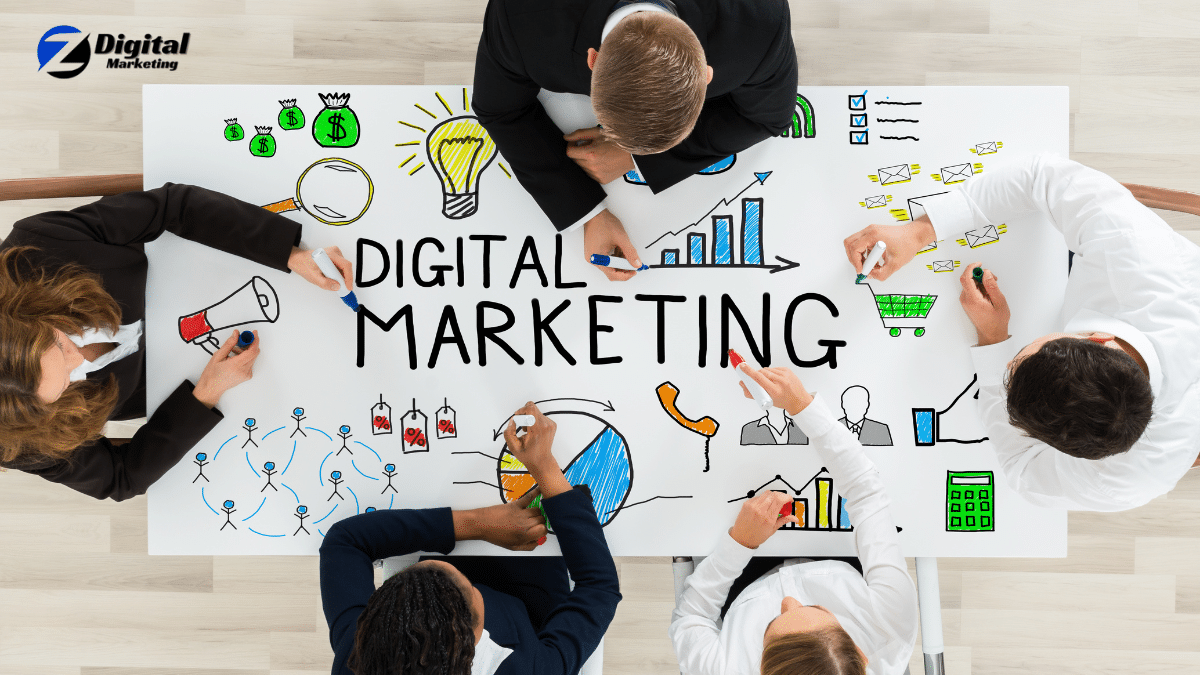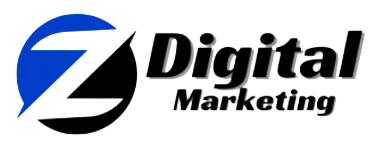
Digital marketing refers to any form of promotion using digital channels and platforms such as search engines, social media networks, websites, email newsletters, mobile applications, etc. Compared to traditional methods like billboard advertising, physical distribution channels are required to reach global audiences with relative cost efficiency and measurability.
Key Components of Digital Marketing
- Online Presence: Maintaining a website, social media pages, or e-commerce platform as part of a digital marketing strategy.
- Targeted Campaigns: Leveraging data analytics to target specific demographics with targeted ads.
- Real-Time Interactions: Engaging customers directly via social media pages, emails, or any other channel available to your company.
Types of Digital Marketing
Digital marketing encompasses various strategies businesses can utilize to achieve their goals through digital channels. Below are the main types of digital marketing:
Search Engine Optimization (SEO)
SEO refers to optimizing a website to rank higher in search engine results pages (SERPs) to increase organic traffic from search engines like Google, Bing, and Yahoo.
Types of SEO
- On-Page SEO: Optimizing content, meta tags, and images.
- Off-Page SEO: Building backlinks from reputable websites.
- Technical SEO: Enhancing website performance and structure.
Content Marketing
Content marketing refers to creating valuable content to engage your target audience, including blog posts, infographics, videos, or eBooks.
Types of Content Writing
- Blog & Article Writing
- Product Description
- Guest Post Writing
- Website Content
- Technical Writing
- Article Rewriting
- Review Writing
- Social Media Content
Social Media Marketing
Social Media marketing includes using platforms such as Facebook, Instagram, LinkedIn, and Twitter to promote your brand and interact with your target market.
Tactics for Social Media
- Paid ads and promotions
- Community building
- Content sharing and engagement
- Influencer partnerships
Email marketing
Email marketing is an effective tool for building customer relationships. It involves sending targeted emails directly to individuals or groups for promotional or other reasons.
Email Marketing Strategies
- Segmentation based on interests
- Personalized campaigns
- Newsletter distribution
- Automated email sequences
PPC (Pay Per Click)
PPC (Pay Per Click) advertising allows businesses to pay when their ad is clicked – Google Ads and Facebook Ads are popular platforms offering this form of digital promotion.
PPC Benefits
- Quick Results
- Targeted Audience
- Scalable Advertising
- Measurable ROI
Affiliate Marketing
Affiliate marketing (or performance-based marketing) is an approach in which businesses partner with affiliates (individuals or companies) to market their products in exchange for a commission payment.
How Affiliate Marketing Works
Your product or service is shared via blogs or social media by affiliates who receive a commission on any sales they generate – making this an attractive, low-risk, high-reward marketing strategy.
Influencer Marketing
Influencer marketing leverages individuals with an impressive following on social media or other platforms to market products or services directly to their target audiences.
Types of Influencers
- Macro-Influencers (with enormous followings)
- Micro-Influencers (with smaller yet highly engaged audiences)
- Nano-Influencers.
Video Marketing
This form of promotion uses videos to market products or services. Popular platforms like YouTube and TikTok enable businesses to easily reach a broad audience with captivating video content.
Video Content Ideas
- Product demos
- Customer testimonials
- Live streaming
- Tutorials & How-to guides
Web Development
Website development involves designing, building, and maintaining websites to optimize them for user experience and digital marketing efforts. An intuitive website with superb usability is critical to successful digital marketing campaigns.
Key Components of Web Development
- Attractive web designs
- Mobile responsiveness
- Fast loading speed
- SEO-friendly structures
Graphics Designing
Graphics designing is an essential aspect of digital marketing that involves crafting visually appealing graphics for social media posts, websites, ads, etc. Graphics can draw in viewers while increasing engagement levels.
Types of Graphics Design in Digital Marketing
- Logo and branding
- Social media visuals
- Banner ads
- Website layouts
- Infographics
Advantages of Digital Marketing
Digital marketing provides numerous advantages over traditional promotion methods.
1. Cost-Effective
Digital marketing can often be more cost-effective for small businesses than traditional advertising methods, mainly social media campaigns and email marketing, which have low budget requirements and provide significant returns.
2. Reaching Your Audience
With tools like Google Ads and social media targeting, your marketing efforts can reach the right people to generate quality leads and boost conversion rates. It ensures a higher conversion rate.
3. Measurable Results
Digital marketing offers precise analytics that enables you to monitor the performance of your campaigns in real-time and adjust them based on this data to achieve better results.
4. Increase Engagement
Digital marketing enables greater Engagement between brands and their target audiences through interactive content, social media discussions, and email follow-ups.
5. Global Reach
Digital marketing removes geographical limitations, making it possible to reach an international audience more effectively than ever before. From local shops to global brands alike, digital marketing simplifies growth.
Why Is Digital Marketing Essential?
1. Consumer Behavior Shift
It’s a consumer trend shift. More consumers than ever go online when researching products or making purchasing decisions – without a digital presence, they risk losing customers who could be otherwise found elsewhere! If no digital presence exists, then businesses risk losing potential customers.
2. Competitive Edge
With more businesses shifting their marketing activities online, staying ahead in digital marketing helps you maintain a competitive advantage. If you don’t utilize these channels yourself, your rivals likely do!
3. Increased Customization
Digital marketing offers businesses more incredible customizability in targeting customer data and preferences, making your marketing more targeted and effective.
4. Adaptability and Flexibility
Digital marketing strategies offer great flexibility, allowing you to quickly test, tweak, and optimize campaigns to remain up-to-date with current trends and customer needs.
Digital Marketing Tips for Success
- Optimize Your Website for Mobile: It is increasingly common for consumers to browse and shop using mobile devices.
- Focus on Quality Content: Engaging, relevant content will keep audiences returning for more.
- Employ Search Engine Optimization: Optimize your website so it will rank highly in search engines, tracking metrics and analyzing data to enhance performance for maximum success.
- Stay Consistent: Consistency in your marketing efforts – from social media posts and email campaigns to long-term growth and customer retention is the cornerstone of success.
Conclusion
Digital marketing is an indispensable strategy for modern businesses. By harnessing various digital channels – SEO, content marketing, social media, and email – digital marketers can reach a broader audience, increase sales, and foster long-term relationships with their customers. Whether you are just getting started or seeking to improve current efforts, understanding its importance, types, and benefits is vital for long-term success in this ever-evolving field.
FAQ’s
Q. What is the Difference Between Digital and Traditional Marketing?
Digital marketing utilizes online channels like websites, social media, and email for promotion, while traditional methods involve television commercials, print media advertisements, and direct mail campaigns.
Q. Is Digital Marketing good for Small Businesses?
Digital marketing provides small businesses with cost-effective tools to reach global audiences, increase visibility, and drive sales without breaking their budgets.
Q. How long will it take for digital marketing results to show?
It depends on your marketing strategy – SEO results may take months, while PPC or social media ads may produce quicker results.
Q. Should I handle digital marketing or hire an agency or expert?
Although some businesses may manage digital marketing internally, employing professional help can ensure campaigns achieve maximum impact, and reach, saving your time and efforts.
Q. How can I measure the success of my digital marketing campaigns?
You can assess the success of a digital marketing campaign using tools such as Google Analytics, social media insights, and email performance metrics. Tracking KPIs such as traffic levels, conversion rates, and ROI further indicates success.
